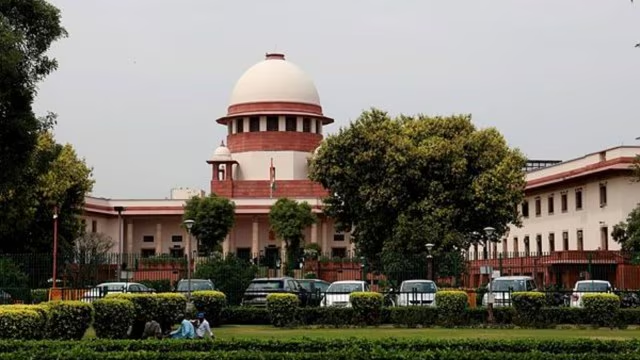Taking note of the alarming rise in student suicides across India’s educational institutions, the Supreme Court has underlined the need to confront the growing mental health crisis afflicting students with seriousness and sensitivity. The court has issued a fresh directive to all states and Union Territories, asking them to report within eight weeks on the steps taken to implement the pan-India guidelines it had prescribed earlier to address student mental health and prevent suicides.

A bench comprising Justices Vikram Nath and Sandeep Mehta also directed the Central government to submit a compliance affidavit within the same timeframe, detailing the progress made in implementing these measures. The court was hearing a matter linked to the enforcement of its July 25 judgment, which laid down a comprehensive framework aimed at suicide prevention and mental well-being of students across schools, colleges, and coaching institutes.
In its earlier verdict, the top court had expressed grave concern over the increasing cases of student suicides, particularly among aspirants preparing for competitive examinations. The bench observed that India continues to face a “legislative and regulatory vacuum” when it comes to a unified, enforceable framework for protecting the mental health of students. While various initiatives exist in isolation, the lack of a coordinated national policy has left millions of students vulnerable to stress, anxiety, and depression.
The July judgment had gone on to issue 15 detailed guidelines that are to remain binding until the government enacts a formal legislative or regulatory framework. These guidelines include the adoption of a uniform mental health policy across all educational institutions — a policy that draws inspiration from existing initiatives such as the ‘Ummeed’ draft guidelines, the ‘Manodarpan’ programme, and the National Suicide Prevention Strategy.
According to the court, every institution — from schools to universities and private coaching centres — must not only implement such a policy but also review and update it annually. Moreover, it must be made easily accessible to students, teachers, and parents through institutional websites and notice boards.
“The mental health of students is not a peripheral issue; it lies at the heart of education,” the bench had stressed, noting that academic pressure, fear of failure, isolation, and the stigma attached to seeking help have together created a silent epidemic among India’s youth.
The court also pointed out that the Ministry of Education has, in recent years, taken some preventive steps to address the crisis. In 2023, it introduced the ‘Ummeed’ draft guidelines — an acronym for Understand, Motivate, Manage, Empathise, Empower, and Develop — which seek to provide schools with a structured approach to suicide prevention. Similarly, during the COVID-19 pandemic, the Ministry had launched ‘Manodarpan’, a nationwide initiative to promote mental well-being and counselling support for students facing emotional distress.
Despite these steps, the court emphasised that implementation remains inconsistent and fragmented, particularly in private coaching institutes that cater to lakhs of competitive exam aspirants. To address this, the July judgment had directed all states and Union Territories to notify rules mandating registration, student protection norms, and grievance redressal mechanisms for such centres within two months.
During Monday’s hearing, the bench was informed that the Centre had been asked to file a compliance affidavit within 90 days of the July verdict. Taking note of the delay, the court granted an additional eight weeks to both the Centre and the states to submit their progress reports. All states and Union Territories have now been impleaded as respondents, and the matter will be taken up for further hearing in January 2026.
The case stems from an appeal challenging an Andhra Pradesh High Court order that had rejected a plea seeking a Central Bureau of Investigation (CBI) probe into the death of a 17-year-old NEET (UG) aspirant in Visakhapatnam. The tragic case highlighted the crushing pressure faced by students preparing for competitive exams and prompted the Supreme Court to take suo motu cognisance of the wider systemic failures behind such deaths.
With its latest intervention, the apex court has once again reminded institutions, administrators, and policymakers that the battle against student suicides cannot be won by silence or sporadic measures — it demands empathy, accountability, and action.
https://thenewstudent.com/us-universities-phd-postdoc-funding-cuts/